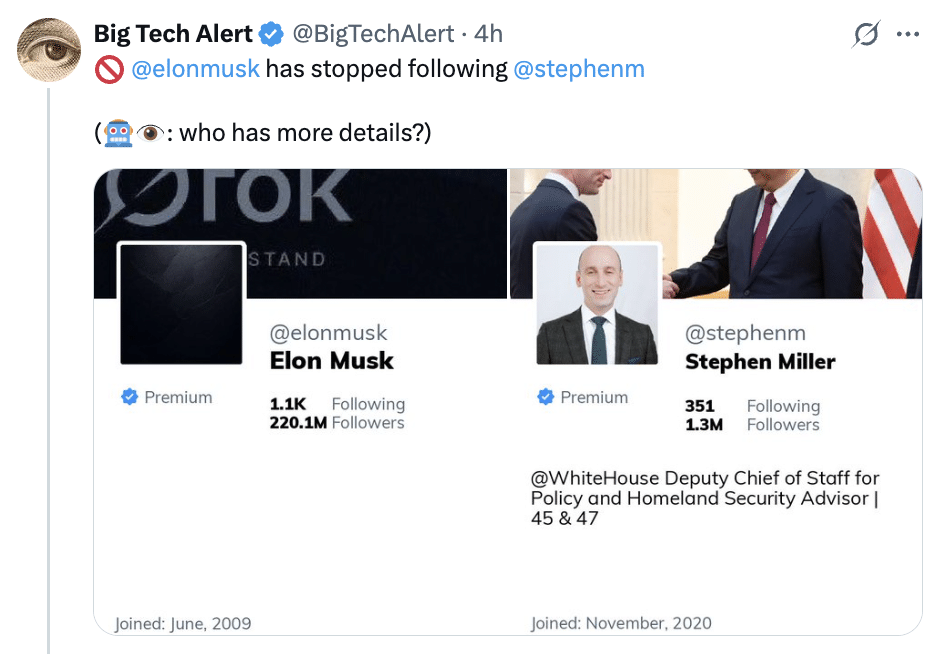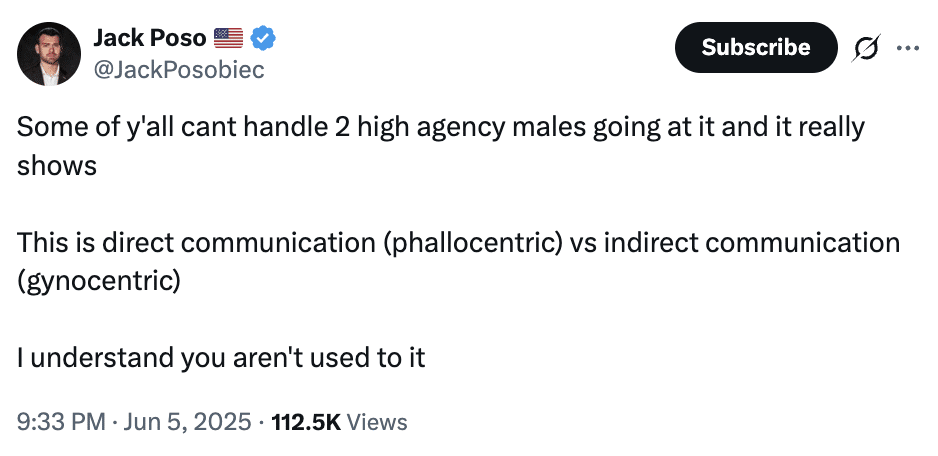The year of our lord 2025 started with a rabid Musk-Trump supporter self-immolating himself in a Cybertruck parked in front of a Trump casino, trying to send us all a message.
The most interesting development in the burgeoning Civil War between two historical narcissists is that Elon unfollowed both Stephen Miller and Charlie Kirk (the latter whom drooled a bit about how wonderful it was Elon decided to platform Nazis after he bought Twitter).
But that’s just one girl’s opinion. Feel free to share yours below!




